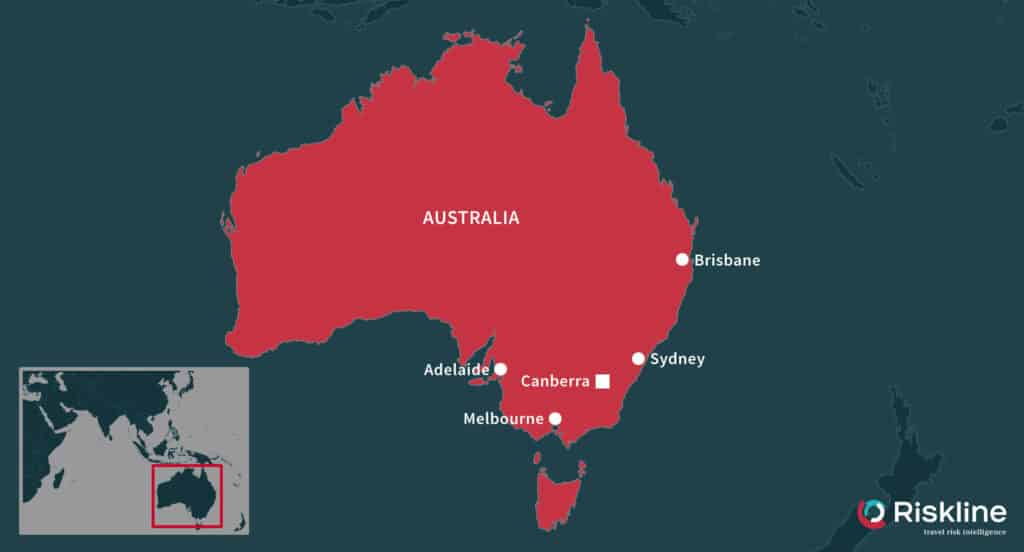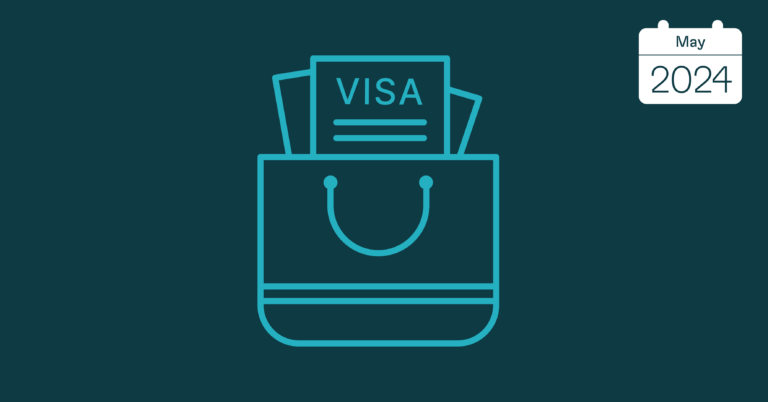On 1 February, Australian authorities announced that people who have travelled through mainland China, where there is a fast-spreading deadly novel coronavirus (COVID-19) * outbreak, were banned from entering Australia for at least 14 days after they have left mainland China. However, Australian nationals, permanent residents and their immediate family members were exempt from the ban. Australia’s restrictions for travellers from China have triggered protests by university students and social activists in major cities like Sydney, Adelaide and Melbourne since early February, after the restrictions were extended multiple times and 100,000 students from China who have enrolled in universities in Australia for the start of the new semester in March were not allowed to travel to Australia. Demonstrations over the issue are likely to continue and spread to other cities in the near-term, after the government warned that the China travel restrictions are likely to be extended beyond 14 March.
Since 3 February, members of University of Sydney Students’ Representative Council (USYD-RC), Refugee Active Collective (RAC) and Autonomous Collective Against Racism (ARAC) have staged large demonstrations to demand a reversal of the travel restrictions, deeming them to be racist as they mostly applied to Chinese nationals. Protesters argued that the travel bans are excessive as the World Health Organisation (WHO) has not recommended any travel restrictions in response to the coronavirus outbreak. Students have protested more over the China travel restrictions, despite similar bans existing for travellers from Iran and South Korea, as there are around 1.7 million Chinese students enrolled in higher education institutes in Australia, the highest among international students. Since 22 February, the universities of Melbourne, Adelaide, Western Sydney and Australian National University have provided grants of up to AUD 7,500 for each registered student currently in China to stay in another country which does not have a COVID-19 outbreak for 14 days, before they can make their way to Australia, or 20 percent discounts on their fees if they chose to study remotely. However, other smaller universities with limited funds have been unable to provide similar grants to their registered students from China to self-quarantine abroad before travelling to Australia, keeping student protests over the issue alive. The Australian government is unlikely to yield to the pressure from ongoing protests any time soon given the alarming public health statistics emerging in China, from where at least 1.4 million visitors travel on short-term visas to Australia every year.
Since the COVID-19 outbreak began in China’s Wuhan, Hubei province, in December 2019, the infection has spread rapidly to dozens of countries around the world. At least 50 cases as well as two associated fatalities have been confirmed in Australia, including in New South Wales, Victoria, Western Australia, Queensland and South Australia. Australian health officials suspect that the actual infection numbers in China are much higher after Chinese authorities decided to exclude asymptomatic patients who tested positive for COVID-19 as confirmed cases in early February.
Members and supporters of USYD-RC and ARAC have announced further protests over Australia’s restrictions for travellers from China in Sydney and Melbourne, with other social groups planning smaller protests in Adelaide and Canberra through March, over the issue. Related protests by members of the Chinese community and workers unions may also erupt in Sydney and Melbourne in the near-term, and spread to other cities such as Adelaide, Canberra, Perth and Brisbane as many Chinese-owned businesses and workers have complained of staff shortages due to the restrictions. While demonstrations over the issue are unlikely to escalate to clashes or unrest, they risk damaging Australia’s image as a much sought after destination among Chinese students, tourists and business travellers. As the easing of restrictions is unlikely, Australian authorities will rely on enhanced health screening measures in public areas and transport hubs, and improving the capacities of their hospitals to deal with the coronavirus phenomenon.
*Novel Coronavirus (COVID-19) also referred to as ‘Wuhan coronavirus’, is a new viral illness that affects the respiratory system, similar to Severe Acute Respiratory Syndrome (SARS) and the Middle East Respiratory Syndrome Coronavirus (MERS-CoV). Infected patients develop severe acute respiratory illness with symptoms of fever, shortness of breath and cough and in some severe cases gastrointestinal symptoms, pneumonia and kidney failure. The incubation period is averaging five or six days, but can range from two to 14 days and medical professionals around the world are still studying the full extent of the virus’s impact and transmission.
Ramya Dilipkumar is an Australia-based political and security risk analyst covering South Asia.















